MatiDhan Unveiled: IIT Guwahati's Game-Changing Solution for Sustainable Waste Management
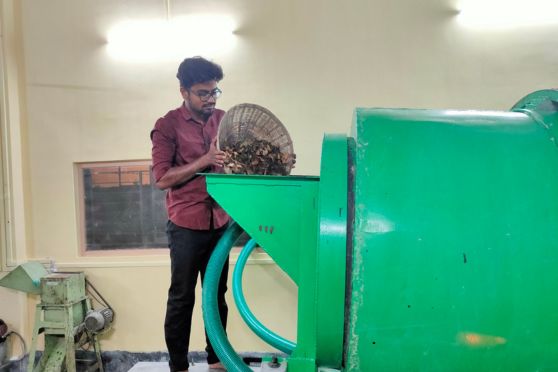

In a monumental stride towards sustainable waste management, the Waste Management Research Group (WMRG) at the Indian Institute of Technology, Guwahati, led by the visionary Professor Ajay S Kalamdhad, introduces an innovative approach revolutionising organic waste treatment.
The team's groundbreaking two-stage biodegradation technique seamlessly combines Rotary Drum Composting with Vermicomposting, slashing biodegradation time to just 27 days. This transformative process not only reduces waste volume by an astounding 71%, but also yields MatiDhan, a nutrient-rich soil conditioner boasting 4.2% total nitrogen.
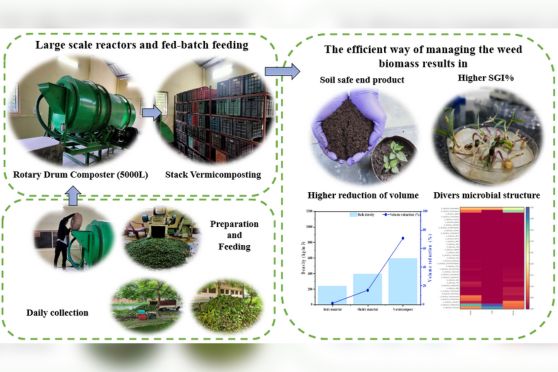
Professor Ajay S Kalamdhad, Department of Civil Engineering at IIT Guwahati, highlighted, “We optimised the Rotary Drum Composting technique and combined it with vermicomposting to reduce the duration of biodegradation. The earthworms, Eiseniafetida, can acclimatise faster to partially degraded organic matter from the drum compost and produce vermicompost in just 27 days".
This game-changing approach is not confined to urban waste management alone. It extends to efficiently converting invasive aquatic weeds like Water Hyacinth into a nutrient-rich soil conditioner. MatiDhan, the high-quality organic vermicompost resulting from this technique, is now available in the market, benefiting local farmers and contributing to sustainable agriculture practices.
Traditional waste management techniques fall short in both efficiency and adaptability. While Rotary Drum Composting can rapidly convert organic feed stocks into compost, its compost quality is subpar. Vermicomposting, though superior, is time-intensive, making it less practical for urban areas.
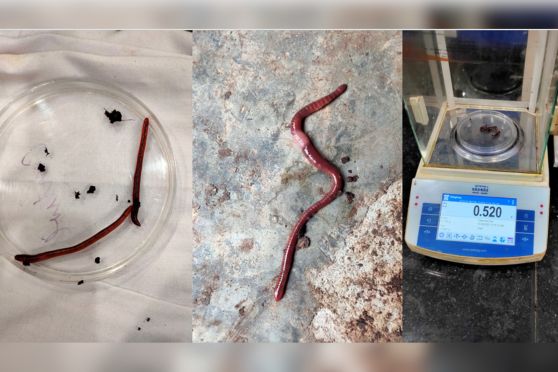
The two-stage biodegradation strategy developed by WMRG at IIT Guwahati bridges this gap, offering a rapid and high quality solution. Professor Ajay S Kalamdhad emphasises its wide applicability, stating, “This proven technique not only handles sizable quantities of organic waste but also offers immediate application feasibility for Municipal Corporations, Industries, Sewage treatment facilities, aquatic weeds and various organic waste management sectors.”
The scaled-up process, tested in the Solid Waste Laboratory at IIT Guwahati, successfully produced 100 to 150kg of MatiDhan vermicompost within a month from 250 to 300kg of daily waste. The increased earthworm count resulted in a secondary end product—the earthworm itself.
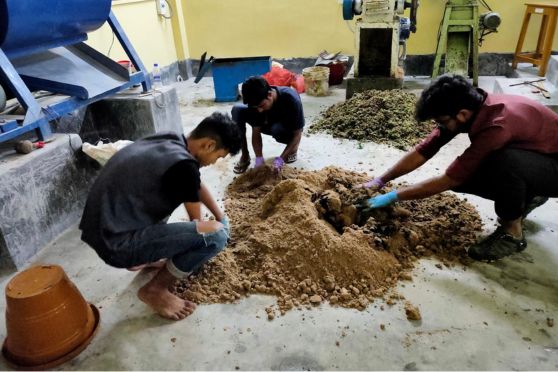
Published in prestigious journals like the Journal of Biomass Conversion and Biorefinery, Journal of Environmental Management, Bioresource Technology, and Waste Management, the findings of this study, co-authored by Suryateja Pottipati and Professor Ajay S Kalamdhad, mark a significant contribution to the field.
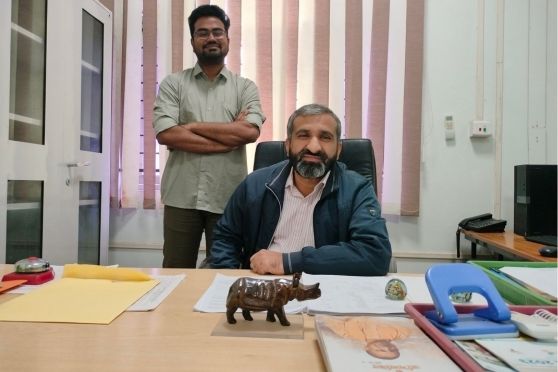
To ensure widespread access to these innovative bioproducts, the technology has been transferred to The Apshisht Management and Environmental Research Pvt Ltd (AMER technologies), a company based in IIT Guwahati incubation centre and producing MatiDhan Organic Vermicompost Fertiliser Manure for Plants. The product is now available on Amazon and INDIAMART, representing a major step towards a greener, more sustainable future.